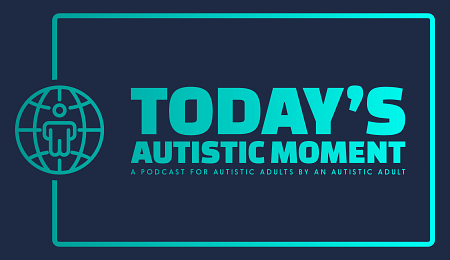
I have had my share of employers letting me go because of Autistic characteristics that they did not accept. The employers know that they cannot say directly that they are letting me go because I am Autistic. That would be immediate grounds for a discrimination law suit. So, when they finish with their list of poor reasons, they end by saying "Things just didn't work out for you for this job."
Not too many years ago, I was looking for a company to help clean my home. Challenges with executive functioning and chronic pain make cleaning our home very difficult to do. One company agreed to come and do a deep cleaning. A few weeks later, on the very day they were supposed to come and clean our home again, I got an email from them saying that they could not come clean my home anymore for safety and health concerns. When I called to talk with someone about this, the owner of the business said to me, "Sometimes things just do not work out. This is one of those things that just didn't work out."
The words "Things just didn't work out" are an excuse that is the lowest kind of ableism. When those words are said to someone who is Neurodivergent, they are passive aggression. The individual(s) who say those words are dodging from saying the real reason they have rejected the Autistic individual.
In May 2021 my guest Samuel J. Levine talked about Autistic Adults: Justice in Employment. Among the points we made was that while the Americans with Disabilities Act has brought many improvements with regards to employment; there are still too many loopholes for employers to get around not hiring or dismissing an Autistic person from a job. Many states have human rights laws designed to protect a disabled individual from discrimination. What this means is that they cannot dismiss someone from a job, or refuse public assistance on the basis of one's disability. However, there is nothing in the law to stop them from making the job more difficult on the disabled person to do things they cannot perform, so they can have a reason to dismiss them.
For example, employee 1 is not disabled. Employee 2 is disabled. Employee 1 has worked there or 5+ years. Employee 2 is a new employee. Employee 2 makes every effort to arrive at the starting time of 9:00am everyday. They are always on time. Employee 1 comes in to work 5 minutes everyday. One day, employee 2 is making their way to work, and they get tied up at the railroad tracks because a train is coming through. Employee 2 calls the employer to tell them what is happening. The receptionist takes employee 2's call and tells them to take their time and they will tell the manager while they are going to be late. Employee 2 finally gets to work about 7 minutes late. Employee 2 walks in and punches in. Suddenly the manager gives them a warning for coming in late and says that it is warning number 1. The manager reminds them that if they get 3 warnings total, they will be terminated. Employee 2 followed the rules in the Employee's Manual. Even though employee 1 comes in to work 5 minutes late everyday, employee 2 gets a warning for arriving 7 minutes late even though they called in. This kind of thing has nothing to do with whether or not employee 2 followed the rules. The manager is being harder on employee 2, because they don't want to keep employee 2. So, they will be more strict with employee 2 to keep the rules. When and if the manager gets to a 3rd warning for employee 2 to terminate them, one of the things the manager might say is "Some jobs just don't work out. This job just didn't work out for you." The disabled employee is now without a job. They will have to figure out how to pay their rent, get their food, and live on what they have to get by. When they go apply for their next job, they will have to write down on their application that they worked for the former employer. The deck is stacked against the disabled individual before they get a chance to start a new job.
The words "Things just didn't work out for you" are the lowest form of ableism. There is no recourse and employers get away with letting go of someone because they didn't want them working for them. The crushing blow on a disabled person is devastating.
Autistics and other Neurodivergents hear the words "things just didn't work out for you" too many times. No matter what the reasons, they are still an ableist's excuse.


